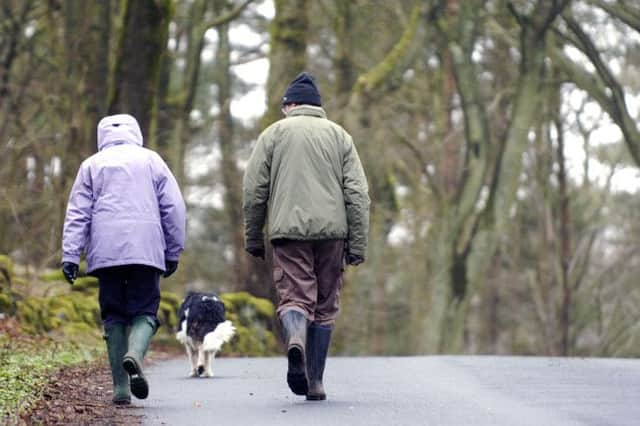‘Access to great outdoors would keep old folk active’


Professor Catharine Ward Thompson, director of the OPENspace Research Centre at Edinburgh University, said people experienced challenges leaving their homes in old age and therefore faced isolation, mental health problems and physical decline.
The warning comes as figures predict that the proportion of people in Scotland over 75 will rise by 80 per cent by 2035. There are also now more people aged over 65 than under 15.
Advertisement
Hide AdAdvertisement
Hide AdThe issue will be discussed at a debate – The Best Years of our Lives? Body, Brain and Well-Being – organised by the British Academy in Edinburgh tomorrow.
Speaking ahead of the event, Prof Ward Thompson said remaining active and being able to access outdoor spaces was a vital part of maintaining quality of life in old age and reducing costs – because people would be less in need of healthcare services.
“Getting outdoors is psychologically good for us all. Getting access to light and vitamin D is good for bone health and our sleeping patterns,” she said.
Prof Ward Thompson said getting out also helped people maintain social connections with friends, family and neighbours.
“If you’re not able to get outside and get to the local facilities or shops then you don’t bump into other people,” she said. “You’re much more likely to be socially isolated.”
The researcher said older people appreciated getting into open spaces, having fresh air and seeing the change of seasons, which made a huge difference to mental health and quality of life.
But she said physical environments needed to be places that made it easy and enjoyable to get outdoors, with good access to public transport. Sadly, she said, this was not always the case.
“We need to think about accessing anything beyond the home. If you step out of your door on to the street where the traffic is whizzing by very fast and there are fumes and the pavement isn’t wide enough, that is off-putting for a start.
Advertisement
Hide AdAdvertisement
Hide Ad“As we get older and frailer our stamina goes and many older people need somewhere to stop and rest, maybe a bench or even just a ledge of a building or a bollard where you can sit yourself down for a bit.
“A lot of older people tell me if they go to Princes Street [in Edinburgh], which doesn’t have many benches, they go and sit in the bus shelters.”
Prof Ward Thompson said the changes that needed to be made were not necessarily radical, but careful planning was necessary as the population ages and people needed places they could live happily in old age.
She said local authorities, public agencies and local communities all had a role to play in planning good environments for older people.
“If you can get outside, get access to services and keep your mental well-being positive, then all kinds of other good things are likely to be maintained – your physical and mental health,” Prof Ward Thompson said.
“Once that starts to go it can be a vicious cycle because you are frightened to get out.”
Katrina Coutts, from the charity Age Scotland, said: “Keeping active in later life is key, not just for good physical health but also to keep people engaged and confident, and promote positive mental wellbeing.”